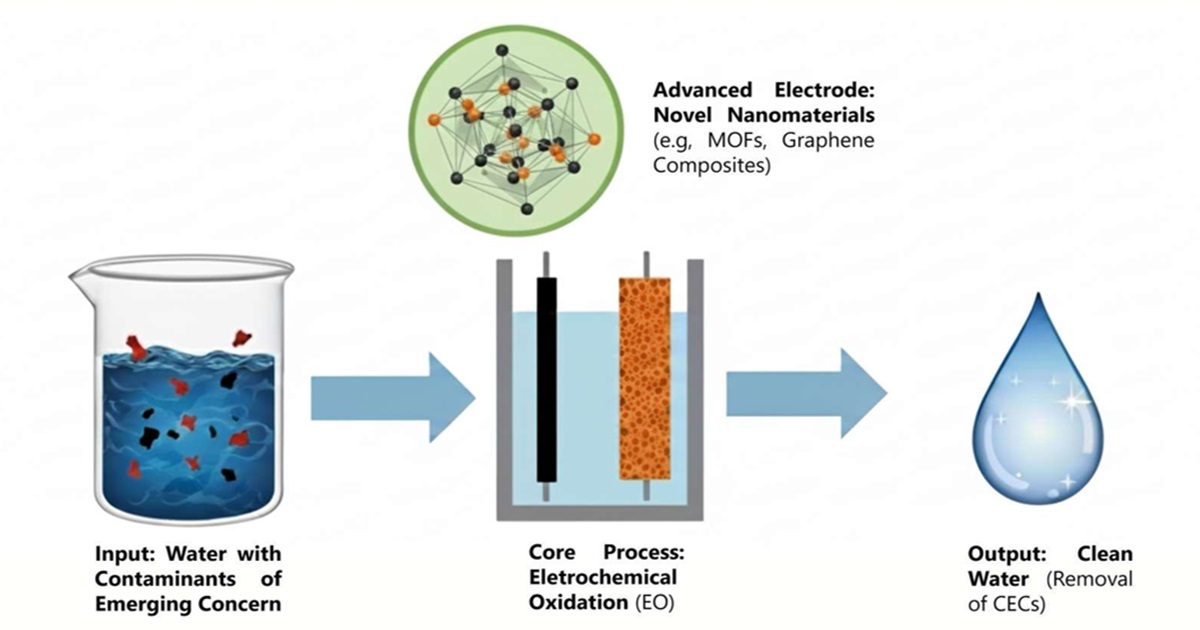Advanced Hybrid and Electrochemical Techniques for Emerging Water Pollutants
A special issue of Toxics (ISSN 2305-6304). This special issue belongs to the section "Toxicity Reduction and Environmental Remediation".
Deadline for manuscript submissions: 20 June 2026 | Viewed by 109

Special Issue Editors
Interests: electrochemistry (fundamental science); advanced oxidation processes (AOPs); electrochemical degradation; anode and cathode materials; water treatment technologies; environmental remediation; emerging pollutants; persistent organic pollutants (POPs)
Interests: advanced oxidation processes (AOPs); electrochemical engineering; environmental remediation; water treatment technologies; persistent organic pollutants (POPs); process scalability materials development; process synergy reactor optimization
Special Issue Information
Dear Colleagues,
The persistent global challenge of providing clean and safe drinking water is intensifying as conventional treatment methods struggle to handle the complex and growing array of contaminants of emerging concern (CECs). These contaminants, including pharmaceuticals, pesticides, and endocrine-disrupting chemicals, form toxic organic residues whose persistence in aquatic environments poses a significant and ongoing risk to both human health and ecosystems, a core concern central to the mission of Toxics. To address this, the Special Issue of Toxics, entitled "Advanced Hybrid and Electrochemical Techniques for Emerging Water Pollutants", is dedicated to collecting cutting-edge research at the intersection of electrochemistry, nanotechnology, and environmental toxicology.
We specifically invite submissions that advance the design, synthesis, characterization, and application of novel nanomaterials used as advanced electrodes in electrochemical oxidation (EO) systems for effective water and wastewater remediation. Areas of particular interest for original research, innovative methodologies, and comprehensive review articles include studies focusing on nanostructured metal oxides, graphene and carbon nanotube composites, metal–organic framework (MOF) derivatives, and hybrid catalysts. Submissions should evaluate the potential, mechanism, fate, and safety implications of these advanced EO systems to define their role in the next generation of water treatment technology.
Prof. Dr. Artur J. Motheo
Guest Editor
Dr. Michel Zampieri Fidelis
Guest Editor Assistant
Manuscript Submission Information
Manuscripts should be submitted online at www.mdpi.com by registering and logging in to this website. Once you are registered, click here to go to the submission form. Manuscripts can be submitted until the deadline. All submissions that pass pre-check are peer-reviewed. Accepted papers will be published continuously in the journal (as soon as accepted) and will be listed together on the special issue website. Research articles, review articles as well as short communications are invited. For planned papers, a title and short abstract (about 250 words) can be sent to the Editorial Office for assessment.
Submitted manuscripts should not have been published previously, nor be under consideration for publication elsewhere (except conference proceedings papers). All manuscripts are thoroughly refereed through a single-blind peer-review process. A guide for authors and other relevant information for submission of manuscripts is available on the Instructions for Authors page. Toxics is an international peer-reviewed open access monthly journal published by MDPI.
Please visit the Instructions for Authors page before submitting a manuscript. The Article Processing Charge (APC) for publication in this open access journal is 2600 CHF (Swiss Francs). Submitted papers should be well formatted and use good English. Authors may use MDPI's English editing service prior to publication or during author revisions.
Keywords
- electrochemical oxidation (EO)
- contaminants of emerging concern (CECs)
- nanomaterials
- water treatment
- nanostructured electrodes
- nanotechnology
- environmental toxicology
- wastewater remediation
- metal–organic frameworks (MOFs)
- hybrid catalysts
- electrochemical oxidation (EO)
Benefits of Publishing in a Special Issue
- Ease of navigation: Grouping papers by topic helps scholars navigate broad scope journals more efficiently.
- Greater discoverability: Special Issues support the reach and impact of scientific research. Articles in Special Issues are more discoverable and cited more frequently.
- Expansion of research network: Special Issues facilitate connections among authors, fostering scientific collaborations.
- External promotion: Articles in Special Issues are often promoted through the journal's social media, increasing their visibility.
- Reprint: MDPI Books provides the opportunity to republish successful Special Issues in book format, both online and in print.
Further information on MDPI's Special Issue policies can be found here.







